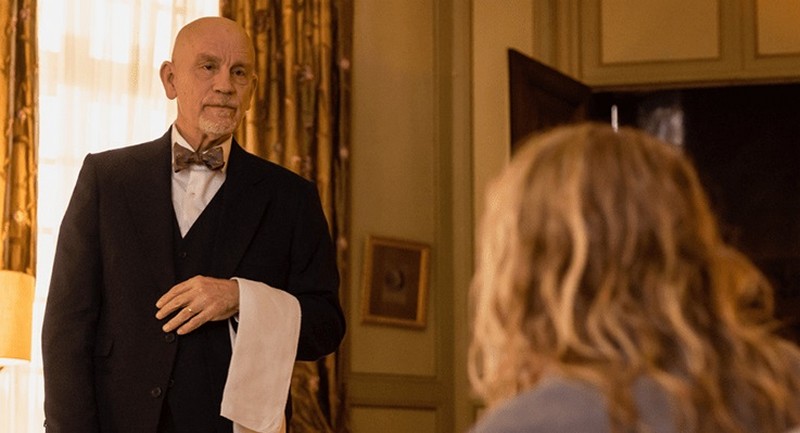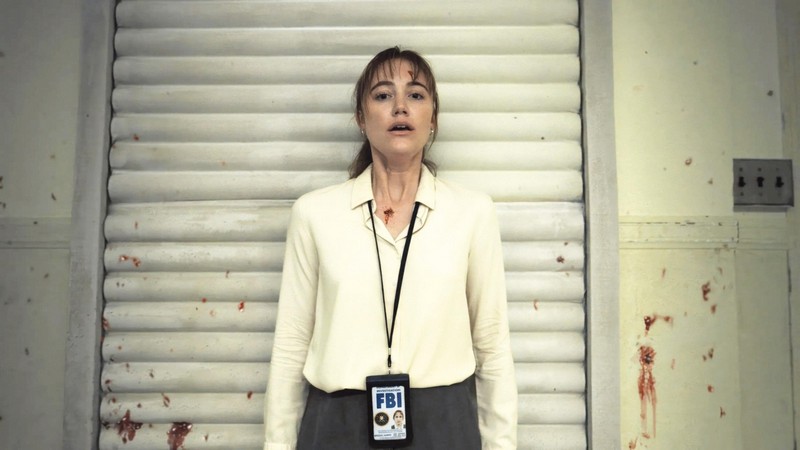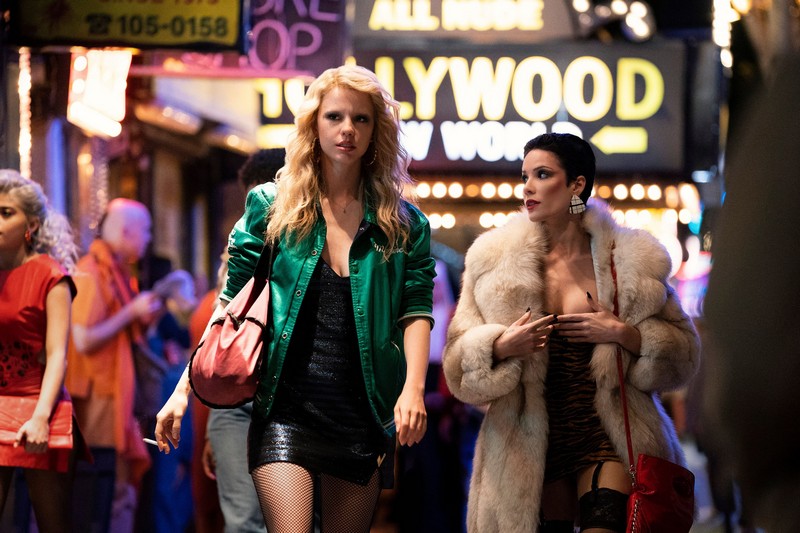The Marvel Cinematic Universe returns to one of its most successful characters with Black Panther: Wakanda Forever. With director Ryan Coogler (Creed) back in charge, the signs were good for this sequel. But the film never really comes together, despite a lengthy runtime and some excellent performances.
As the film opens, King T’Challa is dead. As Wakanda mourns, Queen Ramonda (Angela Bassett) takes the throne. But a long way from Wakanda, events are conspiring against her. Mercenaries attack a Wakandan outreach centre looking for vibranium weapons. At the UN, Western nations accuse Wakanda of playing a dangerous game, and demand access to the super-metal. Queen Ramonda responds by presenting the captured soldiers. Tensions rise when another attack targets an exploration rig in the ocean which seems to have stumbled on a vibranium deposit – which would be the first discovered outside Wakanda. The Americans suspect the Wakandans are behind the attack, in an attempt to maintain their monopoly on the resource. But other forces are at work – specifically a civilization of mer-people led by the volatile Namor (Tenoch Huerta Mejía).

Shuri (Letitia Wright) meanwhile has retreated to her lab following her brother’s passing. And while she seems to have some good ideas, her grief seems to be getting in the way. She finds a purpose though when Namor asks for her help in locating a particular “scientist”. This “scientist” turns out to be a university student, Riri Williams (Dominique Thorne). She’s jerry-rigged a device that can detect vibranium – a dangerous thing in the wrong hands. It soon becomes clear however that Namor wants to eliminate Riri; something Shuri won’t stand for. Differences emerge between Namor and Queen Ramonda, which could spell disaster for Wakanda.
Coogler reunites with Black Panther screenwriter Joe Robert Cole on the script. But where Black Panther felt tight, Wakanda Forever feels bloated. I think a few things might be contributing. First, the film introduces a new adversary in Namor (referred to in the Marvel comics – but not in this film – as the Sub-Mariner). And while Namor might be developed further in the next installment (which is clearly flagged here), he doesn’t bring the same sense of menace as Killmonger. Indeed, at times it feels like he doesn’t even “fit” within the franchise. Also, Black Panther was essentially a personal story. Wakanda Forever tries to embrace a wider palette, but that leads to some rather bland and ultimately pointless CGI action sequences. But probably the biggest issue here is the absence of T’Challa, following the tragic passing of Chadwick Boseman.
Wakanda Forever – like its characters – spends a lot of time searching for a replacement. But both character and actor cast a huge shadow over the production; and it struggles to get out from under. Perhaps ironically though, the film is at its best in dealing with issues of grief and loss. The real-life loss of Boseman no doubt informs Coogler’s approach, and he handles it with assurance and sensitivity. The film includes at least three touching tributes to Boseman, such was his importance to the franchise.
The cast is ably led by Letitia Wright (Death on the Nile) as Shuri, and she does a terrific job with the conflicted character. Lupita Nyong’o (The 355) offers strong support as Nakia, even though it takes quite a while for her character to appear. Tenoch Huerta Mejía (Bel Canto) is a bit of a mixed bag as Namor, excelling in the quieter moments but struggling a little with the character’s dark side; while. Winston Duke (Nine Days) brings a lighter touch as M’Baku. But Angela Bassett (Gunpowder Milkshake) overshadows them all with in a powerful turn as Queen Ramonda.
Maybe my expectations were too high, but I struggled to warm to Black Panther: Wakanda Forever. As with Thor: Love and Thunder, the film seems to have lost focus. When it concentrates on the characters, it’s excellent. But those sequences are too few and overrun by the CGI-heavy action. As mentioned, the film clearly sets up another sequel. And as a result, it ends up suffering from that “middle film syndrome” where it serves mainly as filler until the new installment arrives. Still, if large-scale action is what you want, this film delivers plenty.
David Edwards
Other reviews you might enjoy:

David Edwards is the editor of The Blurb and a contributor on film and television





